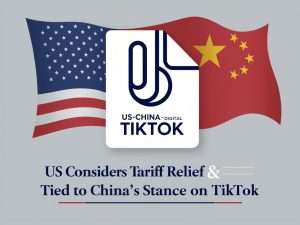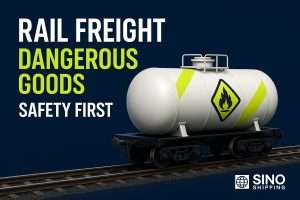Introduction
When it comes to importing goods, it’s important to understand the documentation required in order to clear customs and ensure that the import process goes smoothly. This can be a complex process that requires a thorough understanding of the various documents that may be required. In this blog post, we will be discussing the various documents that may be required when importing goods, starting with the basics and moving on to more specific requirements.
Invoice & Packing List
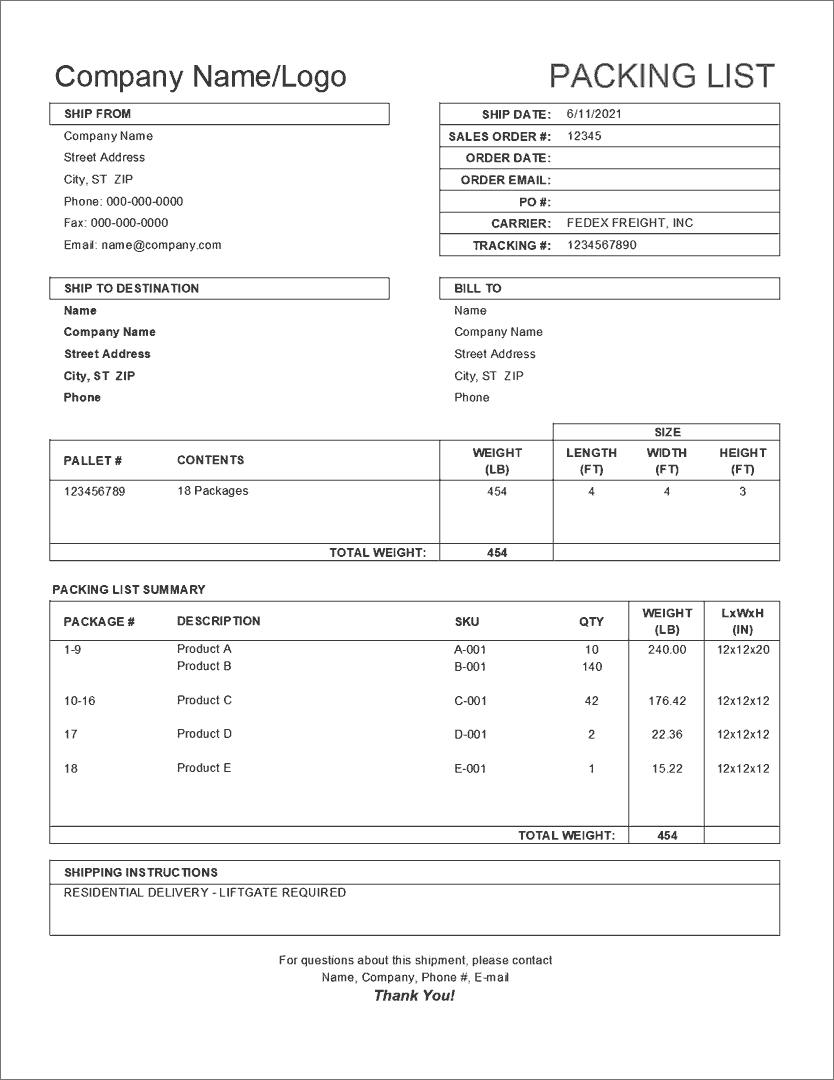
The Importance of Commercial Invoice and Packing Slip in Customs Documentation Requirements
When it comes to importing goods into a new country, there are a few key documents that are required by customs in order to process and clear your shipment. Two of the most important documents are the commercial invoice and the packing slip.
What is a Commercial Invoice?
A commercial invoice is a document that is used to calculate the import duty that will be levied on the goods being imported. This document should include the name and address of the supplier and the importer, the description of the goods, the value of the goods, the terms of the sale, and the country of origin. This information is used by customs officials to determine the value of the goods and the import duty that will be charged.
What is a Packing Slip?
A packing slip is another important document that is used to determine the quantity and type of goods being imported. This document should include the number of packages, the type of packaging, and a detailed description of the contents of each package. This information is used by customs officials to ensure that the contents of the shipment match the information provided on the commercial invoice.
Different Customs Regimes May Have Different Requirements
It’s important to note that while these are the general documents required for customs clearance, different customs regimes may have different requirements. It’s always a good idea to check with the specific customs office where your shipment will be entering to ensure that you have all the necessary documentation.
In Summary: The Importance of Commercial Invoice and Packing Slip in Customs Clearance
In summary, the commercial invoice and packing slip are the basic documents required for customs clearance when importing goods. They provide important information about the value and contents of the shipment, and are used by customs officials to calculate import duty and ensure compliance with regulations. Be sure to check with the specific customs office where your shipment will be entering to ensure that you have all the necessary documentation.
Certificate of Origin
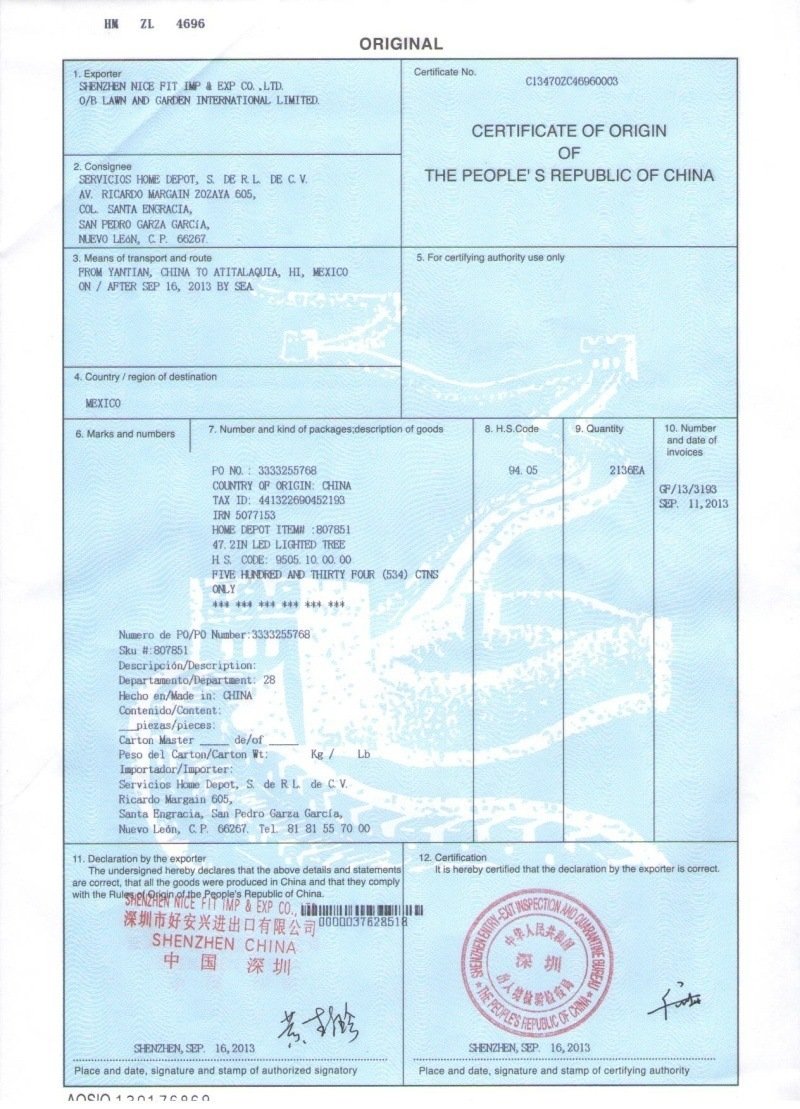
What is a Certificate of Origin?
A certificate of origin is used to prove the country of origin for the goods being imported. This document is important because certain countries may have trade agreements that allow for reduced import duties, or may have boycotts on goods from certain countries. The certificate of origin is also useful for importers to prove that the goods they are importing are not from a country that is being boycotted by their country.
Who Issues the Certificate of Origin?
The certificate of origin is typically issued by the chamber of commerce or a government agency in the country of origin and must be signed and stamped by an authorized official. It should include the name and address of the supplier, the description of the goods, the country of origin, and the signature of the authorized official.
Why is it Important?
The certificate of origin is an important document for importers to have as it can help them qualify for reduced import duties or avoid importing goods from countries that are being boycotted. It is also important for customs officials to ensure that the goods being imported match the information provided on the certificate of origin and are not coming from a restricted country.
Checking with Customs
It’s always a good idea to check with the specific customs office where your shipment will be entering to determine if a certificate of origin is required for your specific import. Keep in mind that different customs regimes may have different requirements, so it’s important to be prepared with all the necessary documents.
In Summary: Understanding the Importance of a Certificate of Origin in Customs Clearance
In summary, a certificate of origin is a document that proves the country of origin for the goods being imported. It is typically issued by the chamber of commerce or a government agency in the country of origin and must be signed and stamped by an authorized official. It can help importers qualify for reduced import duties or avoid importing goods from countries that are being boycotted, and is an important document for customs officials to ensure compliance with regulations. Be sure to check with the specific customs office where your shipment will be entering to determine if a certificate of origin is required for your specific import.
Phytosanitary Certificate

In addition to a commercial invoice, packing slip, and certificate of origin, there may be other documents required depending on the specific import. One such document is a pre-shipment inspection certificate.
What is a Pre-shipment Inspection Certificate?
A pre-shipment inspection certificate is required in countries that have a pre-shipment inspection regime in place. This ensures that the goods being imported meet certain quality, quantity, and price standards. This is particularly important for countries that are concerned about importers being loaded with overpriced rubbish. A pre-shipment inspection certificate is also useful for ensuring that the goods being imported are of good quality and quantity, and that the price is fair.
Who Issues the Pre-shipment Inspection Certificate?
The pre-shipment inspection certificate is typically issued by a recognized inspection agency and should include the name and address of the supplier and the importer, the description of the goods, the quantity, the value, and the results of the inspection.
Why is it Important?
A pre-shipment inspection certificate is an important document for importers to have as it ensures that the goods they are importing meet certain quality, quantity, and price standards. It is also important for customs officials to ensure that the goods being imported match the information provided on the pre-shipment inspection certificate and are not overpriced or of poor quality.
Checking with Customs
It’s always a good idea to check with the specific customs office where your shipment will be entering to determine if a pre-shipment inspection certificate is required for your specific import. Keep in mind that different customs regimes may have different requirements, so it’s important to be prepared with all the necessary documents.
In Summary: Understanding the Importance of Pre-shipment Inspection Certificate in Customs Clearance
In summary, a pre-shipment inspection certificate is a document that is required in countries that have a pre-shipment inspection regime in place. It ensures that the goods being imported meet certain quality, quantity, and price standards, and is typically issued by a recognized inspection agency. It is an important document for importers to have as it ensures that the goods they are importing meet certain standards, and is also important for customs officials to ensure compliance with regulations. Be sure to check with the specific customs office where your shipment will be entering to determine if a pre-shipment inspection certificate is required for your specific import.
Shelf Life Certificate
In addition to the other documents required for customs clearance such as a commercial invoice, packing slip, certificate of origin, and pre-shipment inspection certificate, there may be other documents required depending on the specific import. One such document is a Shelf Life certificate.
What is a Shelf Life Certificate?
A Shelf Life certificate proves the remaining shelf life of goods, especially for perishable goods. This document is useful for ensuring that the goods being imported have not expired and are still safe for consumption.
What does a Shelf Life Certificate Include?
The shelf life certificate should include the name and address of the supplier, the description of the goods, the date of manufacture, the expiry date, and the signature of an authorized official.
Why is it Important?
A shelf life certificate is an important document for importers to have as it ensures that the goods they are importing are safe for consumption and have not expired. It is also important for customs officials to ensure that the goods being imported match the information provided on the shelf life certificate and are not expired or unsafe.
Checking with Customs
It’s always a good idea to check with the specific customs office where your shipment will be entering to determine if a shelf life certificate is required for your specific import. Keep in mind that different customs regimes may have different requirements, so it’s important to be prepared with all the necessary documents.
In Summary: Understanding the Importance of Shelf Life Certificate in Customs Clearance
In summary, a Shelf Life certificate is a document that proves the remaining shelf life of goods, especially for perishable goods. It includes the name and address of the supplier, the description of the goods, the date of manufacture, the expiry date, and the signature of an authorized official. It is an important document for importers to have as it ensures that the goods they are importing are safe for consumption and have not expired, and is also important for customs officials to ensure compliance with regulations. Be sure to check with the specific customs office where your shipment will be entering to determine if a Shelf Life certificate is required for your specific import.
Import License
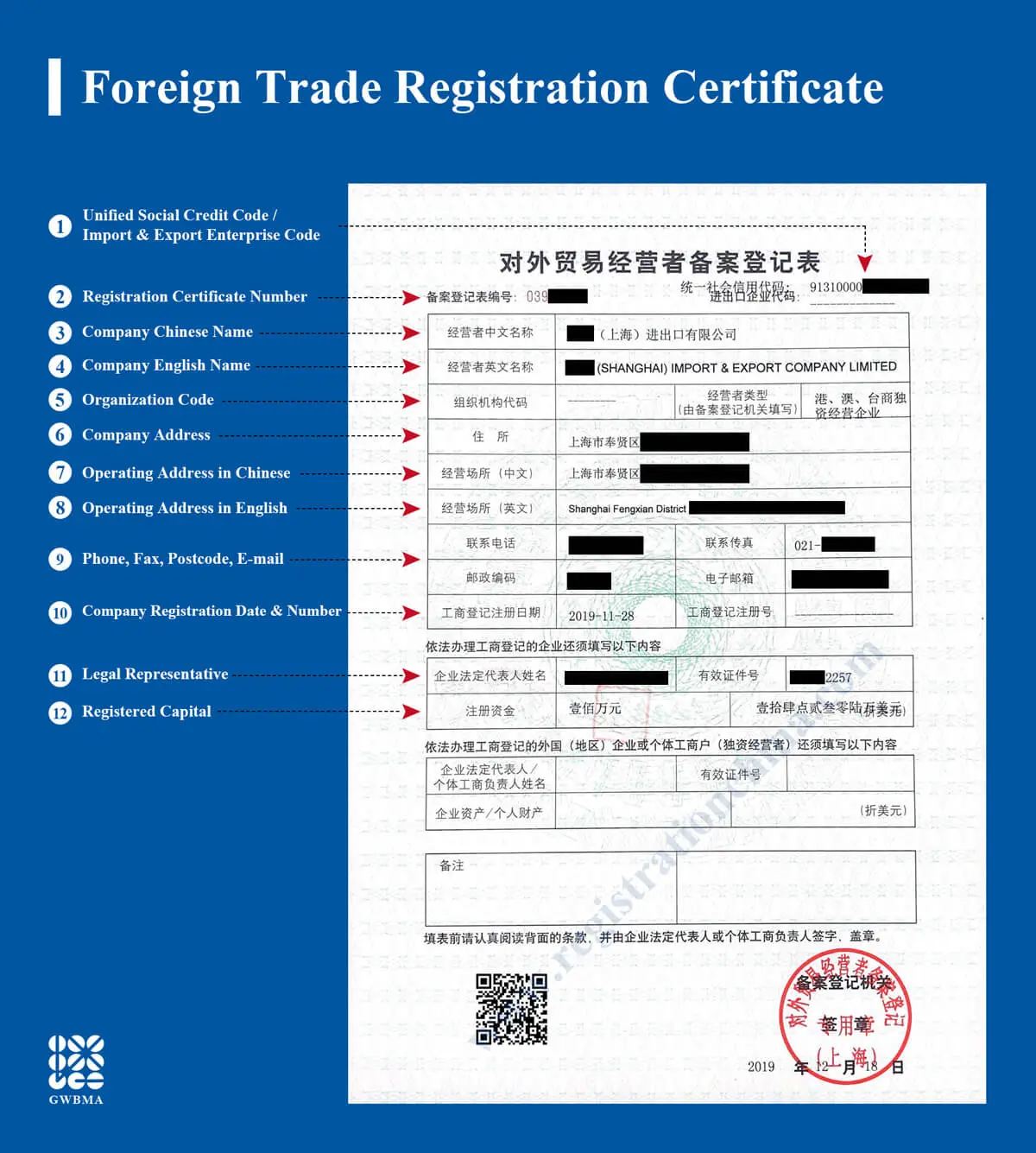
What is an Import License?
An Import License grants permission to import goods, especially restricted goods, and ensures compliance with regulations. This license grants permission to the importer to bring in certain goods into the country, and it’s important to have it to avoid any violation of laws or regulations.
What does an Import License Include?
The import license should include the name and address of the importer, the description of the goods, the value, and the signature of an authorized official.
Why is it Important?
An import license is an important document for importers to have as it grants permission to import goods, especially restricted goods, and ensures compliance with regulations. It is also important for customs officials to ensure that the goods being imported match the information provided on the import license and are not in violation of any laws or regulations.
Checking with Customs
It’s always a good idea to check with the specific customs office where your shipment will be entering to determine if an import license is required for your specific import. Keep in mind that different customs regimes may have different requirements, so it’s important to be prepared with all the necessary documents.
In Summary: Understanding the Importance of Import License in Customs Clearance
In summary, an Import License is a document that grants permission to import goods, especially restricted goods, and ensures compliance with regulations. It includes the name and address of the importer, the description of the goods, the value, and the signature of an authorized official. It is an important document for importers to have as it grants permission to import goods and ensures compliance with regulations, and is also important for customs officials to ensure that the goods being imported match the information provided on the import license and are not in violation of any laws or regulations. Be sure to check with the specific customs office where your shipment will be entering to determine if an import license is required for your specific import.
Bill of Lading
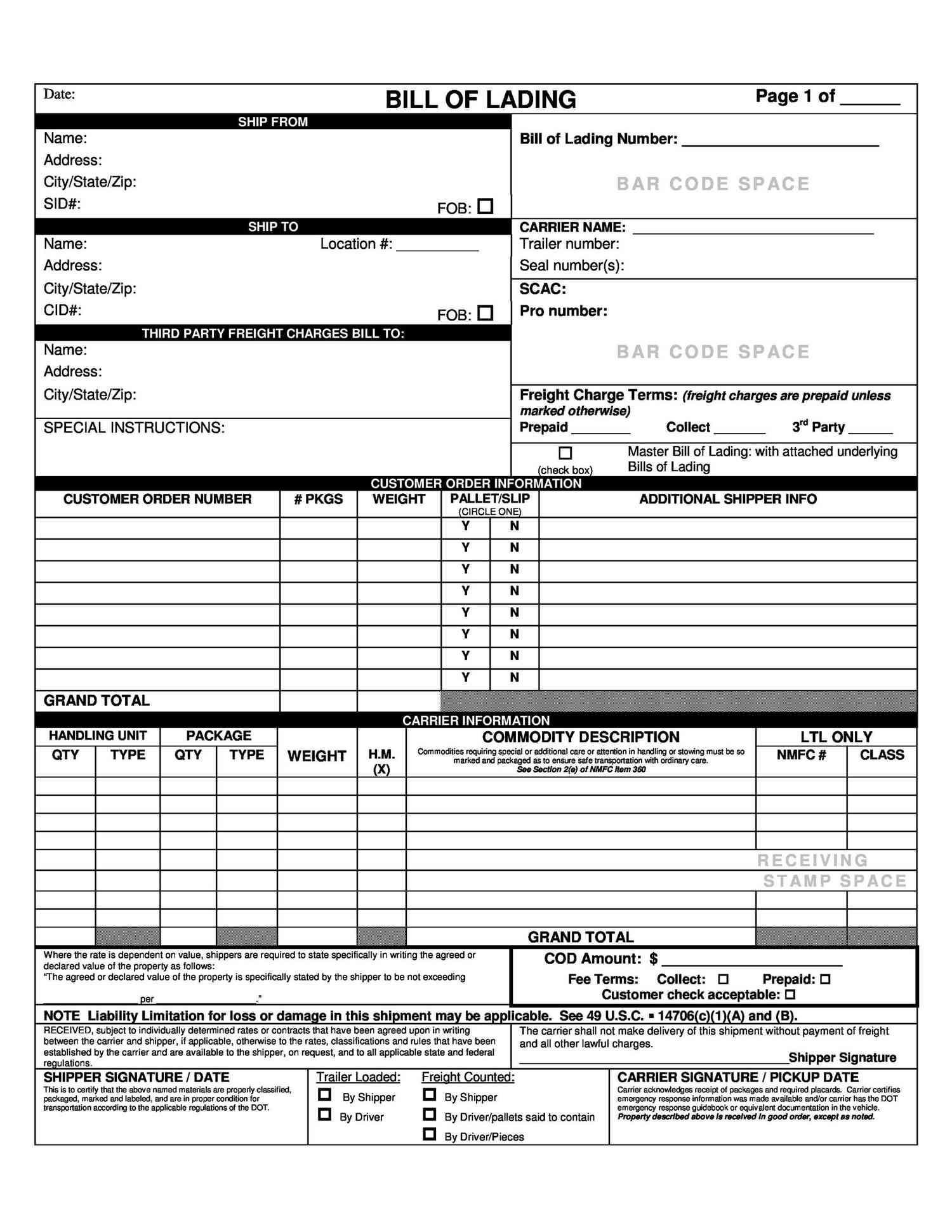
What is a Bill of Lading?
A Bill of Lading is a document that documents the goods being transported by a carrier, proves ownership of goods, and is important for shipping and logistics. It is a legal document that serves as a receipt for the goods being transported, and it’s required for the customs clearance of goods.
What does a Bill of Lading Include?
A bill of lading should include the name and address of the carrier, the name and address of the supplier and the importer, the description of the goods, the quantity, the value, and the signature of an authorized official.
Why is it Important?
A bill of lading is an important document for importers to have as it documents the goods being transported, proves ownership of goods and is important for shipping and logistics. It is also important for customs officials to ensure that the goods being imported match the information provided on the bill of lading and are not in violation of any laws or regulations.
Checking with Customs
It’s always a good idea to check with the specific customs office where your shipment will be entering to determine if a bill of lading is required for your specific import. Keep in mind that different customs regimes may have different requirements, so it’s important to be prepared with all the necessary documents.
In Summary: Understanding the Importance of Bill of Lading in Customs Clearance
In summary, a Bill of Lading is a document that documents the goods being transported by a carrier, proves ownership of goods, and is important for shipping and logistics. It includes the name and address of the carrier, the name and address of the supplier and the importer, the description of the goods, the quantity, the value, and the signature of an authorized official. It is an important
Conclusion: Understanding the Import Process and Documentation Requirements
In conclusion, understanding the documentation requirements for importing goods is crucial in order to ensure a smooth and successful import process. It’s important to consult with a professional or your local customs office to ensure that you have all of the necessary documents before importing goods. By understanding the basics of commercial invoice and packing slip, as well as the specific requirements of certificate of origin, pre-shipment inspection, phytosanitary certificate, Shelf Life certificate, Import License and Bill of Lading, importers can make the process of importing goods much simpler and less stressful. It’s important to also note that keeping all the documents in order and up to date will help avoid delays and possible fines from custom.






